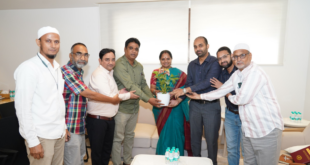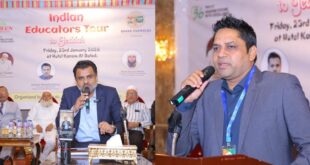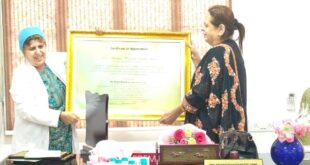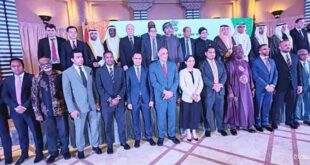(A Panel Discussion By US Consulate General Hyderabad and The Indian Journalists Union)
At a time when America’s first African-American president Barrack Obama, coerced by the United States 2-term presidency limit for an individual, prepares for roll up, India – along with other countries – are rubbing hands in anticipation to who the 45th President of United States will be, and how it will impact their country’s relations with the United States.
Between Obama’s first election and the nearing end of his 2nd Presidential term, social media has grown rapidly. In fact, it has – to say the very least – taken the world by a storm. Newspapers and TV channels are doing all they can, but the instant reach and amplifying power of social media platforms like Whatsapp, Facebook, Twitter and YouTube, among others is unsurmountable. Here’s what the society’s intellectuals and senior journalists think about the 2016 US Elections, and the role of traditional media and social media.
India’s model of general elections is more effective than the election model followed in United States, said Shashank Bengali, the South Asia Correspondent for US-based leading publication Los Angeles Times. In a panel discussion organized by the US Consulate General Hyderabad and The Indian journalists Union on ‘Role of Traditional Media and Social Media’ in Elections’, Mr. Shashank said ‘compared to India where elections are a short-time ‘crystalline’ process, the United States elections go on for a longer time’. This might coerce the public to sometimes tune out of the US elections news gradually while the same process might keep Indians interested throughout due to its relatively shorter timeframe.
Acknowledging the growing dominance and more powerful roles of digital and social media in 2016 US Elections over traditional media forms like newspapers, he observed when Barrack Obama was elected for his first Presidential term in 2008, social media platforms including Facebook and Twitter were relatively new, but now they are used equally formidably by both the US presidential candidates including their corresponding interest groups and the general public. He added that while print media is formidable in its own way, it is constrained by shrinking bureau deadlines unlike digital platforms which offer flexibility of time and space with the power to amplify reach digitally.
Speaking on the occasion, Chief Editor of The Hans India English daily Prof. Nageshwar said “people over estimate and over emphasize the influence of media over elections.” Prof. Nageshwar, who himself had contested and won Legislative Council seat twice earlier as an independent candidate, believes that regardless of media’s portrayal or bias towards a particular candidate, quotes his own experiences as a politician and the role of media in his victory. He added the general public often makes its own decisions while electing their leader.
Lamenting the rising phenomenon of buying media for unethical gains during elections , he observed that “in the process of paid news, the biggest casualty is a professional journalist”. He envisioned that bitter ways of using media for political advantage may also involve not just purchasing media for one’s own content but also for tarnishing the image of the political opponent.
He concluded that while ‘social media is a truly democratic space’, it is also equally getting proprietorial-ized’ and the ‘only hope is the political consciousness of the people.’
Ms. Lalitha Iyer, Principal Correspondent of The Week magazine believes ‘’media isn’t necessarily the honest truth’. She observed that with the increasing prominence of social media, people have the opportunity to interact at the personal level with the contesting candidates.
Presidential candidate Donald Trump retweets and sometimes replies to common people who tweet about him or his party, she quoted as an example. If Hillary Clinton wins the US Elections 2016, she will be the first female President of the United States, and it will be a hat—trick for the democratic party in the history of US elections.
Crediting the digital boom due to adoption of smartphones, she pointed that in 2010 (just two years after Barrack Obama was first elected as President) only 35% people had smartphones while now – when United States is going all in for elections) about 64% people are using one.
Mr. Amar Devapally, Secretary – Indian Journalists Union moderated the discussion. Former Resident Editor of The Hindu Mr. Nageshwar, Mr. K. Amarnath and eminent senior journalists also participated.
The 2016 US Elections are all set to decide the future for ‘world’s oldest democracy’ even as the ‘world’s largest democracy’ is keeping fingers crossed silently wishing and anticipating better bilateral relations forward as the electoral wheels are set in motion.
The author, a Master of Communication and Journalism from Osmania University, is the Online Editor of GAWAH Weekly tabloid. He welcomes feedback, queries and comments at syedkhaledshahbaaz@gmail.com or +91-9652828710.
 Gawah (The Witness) – Hyderabad India Fearless By Birth, Pristine by Choice – First National Urdu Weekly From South India – Latest News, Breaking News, Special Stories, Interviews, Islamic, World, India, National News
Gawah (The Witness) – Hyderabad India Fearless By Birth, Pristine by Choice – First National Urdu Weekly From South India – Latest News, Breaking News, Special Stories, Interviews, Islamic, World, India, National News





